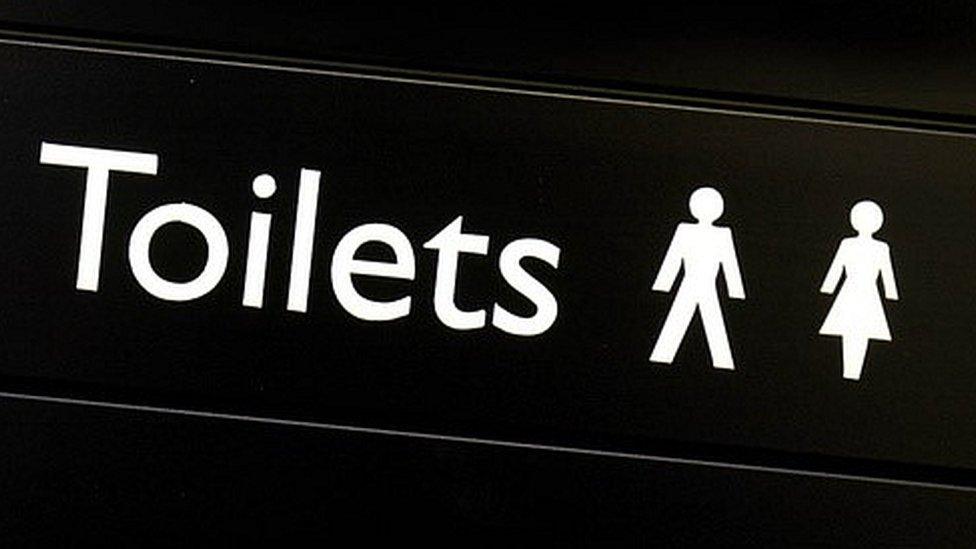New public buildings must have separate male and female toilets, says minister
- Published

The government has said it wants all new public buildings in England to have separate male and female toilets.
Equalities minister Kemi Badenoch said it was "vital that women feel safe" and "that their needs are respected".
The "rise in gender-neutral toilets" meant female users had felt "unfairly disadvantaged" and faced longer queues, the government added.
But transgender rights groups argue gender-neutral toilets can protect trans people from discrimination.
The rights groups say that, along with other people who do not conform to the gender binary, trans people can face intrusive challenges when using male or female toilets.
The government announcement draws a distinction between gender-neutral toilets - which have shared waiting and hand-washing facilities along with a number of cubicles - and unisex toilets, which are single, standalone facilities used by both genders.
The government says separate unisex - or universal - toilets should be provided in new public buildings if there is space, but should not be installed at the expense of female toilets.
It said the revised approach, first mooted last year, would mean women, who may have to use facilities more often, for example because of pregnancy and sanitary needs, were guaranteed "appropriate facilities".
The government's plans, which will require changes to building regulations and guidance, follow a call for evidence which began in late 2020.
A further technical consultation will begin in the autumn, looking at the design of unisex self-contained cubicles to improve privacy, and what improvements are needed for disabled toilets.
The government says its review of public toilets will help “ensure there is a diversity of provision and facilities for everyone
Ms Badenoch said: "It is vital that women feel safe and comfortable when using public facilities, and that their needs are respected.
"These changes will ensure that separate toilets for men and women are preserved at the same time as providing universal toilets for those that want them. This is a common-sense approach."
The department said the proposed measures would apply to new public buildings over a certain size - which would be determined during the consultation process.